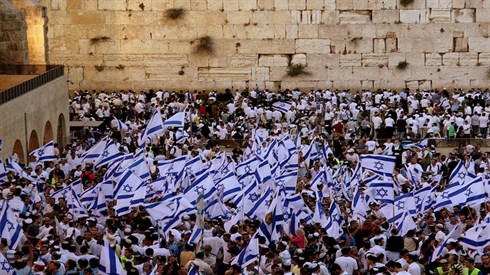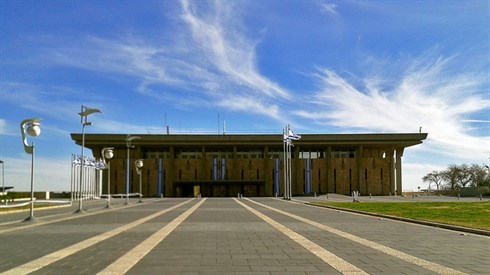253
Question
Im very happy in the country that I live in but feel guilty because growing up I was always taught that as Jews, we have an obligation to live in Eretz Yisrael. I was told things like “you will never attain the spiritual heights in chutz la’aretz that you will attain in Eretz Yisrael”.
Should I feel guilty for not wanting to live in Israel? And can i attain the same spiritual greatness in chutz la’aretz that I could in Israel?
Answer
Shalom,
I truly admire your desire for spiritual greatness, and your honesty and candidness in admitting that which most orthodox Jews in western countries really feel, yet are embarrassed to confess: that they simply are happy where they live, and don’t feel like make aliya. There are likewise, many Jews who would like to observe Shabbat or learn Torah, yet simply don’t feel like it, and aren’t motivated enough to “take the leap”. B’ezrat Hashem, through understanding the Torah’s stress and the importance of these fundamental mitzvot, hopefully the motivation will come.
Yes, it is true what you learned that according to Judaism, “you will never attain the spiritual heights in chutz la’aretz that you will attain in Eretz Yisrael”. In this short anwer, it is impossible to cite the multitude of sources stressing the centrality of Eretz Yisrael to Judaism, for when asked to do so, the Or Same’ach and Meshech Chochma answered that would be “like trying to gather all of the dew from the oceans” (Eretz Yisrael b’Sifrut haTshuvot, III, p.68). Let me just suffice to quote that “Living in Eretz Yisrael is equated with the rest of the mitzvot combined” and therefore “it’s even better to live in a city of idolators in Eretz Yisrael rather than a city of Jews in chutz laAretz” (Sifre R’eh 12, Tosefta Avoda Zara 5, 2); “whomever lives in chutz laAretz has no G-d” and is “as if he serves idols” (Ktuvot 110b). The Sh’china (Divine spirit) is only found in Eretz Yisrael (see at length, Sefer HaKuzari, II, 22-24) and the mitzvot were all commanded to be observed davka here (Dvarim 5, 27- 6, 3). Outside of Israel, even the mitzvot which can technically be done, are just practice, so as not to forget how to do them when you come back to Israel (Sifre and Rashi Dvarim 11, 18 and Ramban on Vayikra 18, 25). The Chafetz Chaim says that the very same mitzvah in chu”l is worth only 5% of its real value when observed in Eretz Yisrael (20 times as much!, L’Ntivot Yisrael, p.202).
Philosophically, the all-encompassing mitzvah of living in Israel, is not just one mitzvah but actually changes every single aspect of life, even elevating the mundane and secular to become holy and significant. The land, rocks and fruit are holy (Eretz HaKodesh), as are the people (Goy Kadosh), the language (Lashon haKodesh), and the army (Milchemet Mitzva). The air we breathe here is holy, and every single second you amass another mitzvah m’doraita, even in your sleep (Sefer Charedim, ch. 59)! Going to work or cleaning the house is not bitul Torah, for every apple you pick, every garbage you sweep or every computer program you write, is fulfilling Mitzvat Yishuv Eretz Yisrael (Chidushei Chatam Sofer, Sukka 35, and Torat Moshe, p. Shoftim).
As is often the case in life, when having to decide between inner or external desires, between your Yetzer Hatov (the spirituality you want deep in your heart) and your yetzer HaRa (what you “feel like” doing), it would be wise to favor the long-term spiritual pleasure, as opposed to the short-term physical pleasure. Living in America, for example, may be more comfortable (at least in the meantime!), but Judaism believes that spirituality, idealism, kdusha, mitzvot and Am Yisrael are what life is really about! There is more kdusha in one raisin in Eretz Yisrael, than in all of the fruits and vegetables grown in North America, South America, Europe, Africa and Asia put together!
Nevertheless, all of the above is definitely not in order to make you feel guilty for not wanting to live in Israel, but contrarily, to help you identify and “want to want” to fulfill this all-encompassing mitzvah. Just as our rabbis teach that Shabbat and Torah study are equated with the rest of the mitzvot, not in order to make those who don’t observe feel guilty, but to stress the spiritual greatness which comes with their observance. That it’s worth it to “take the leap”.
In summary, especially today, when aliya is not “just” a mitzvah equated with the rest combined, but is also: part of the promised “ingathering of the exiles” which we dreamed about for 2,000 years; coming home to the Torah center of the world; identifying and placing your lot with Am Yisrael who’s future is here- today aliya should be seen not just as an obligation but a z’chut, an historic fortune and golden spiritual opportunity.
In y’mot haMashiach, every Jewish family that will still be around, will have had at least one member who had the courage and spiritual motivation to “make the leap” and eternalize that family’s tree, by getting up and moving to the final destination. Why not be that great-great grandfather who is truly great, who’s vision will leave an eternal mark on the family and on Am Yisrael, even a thousand years from now! Be like Avraham who passed the test of “Lech Licha m’artzicha… el haAretz”.
Try learning as much as you can (for example see “The Centrality of Eretz Yisrael to Judaism” at: //www.yeshiva.org.il/midrash/shiur.asp?cat=562&id=10931&q= )
about Am Yisrael and Eretz Yisrael, and your motivation to spend your life with both will deepen your connection to Torat Yisrael, as well!
With Love of Israel,
Rav Ari Shvat

Omer Days I can shave/cut hair
Rabbi David Sperling | Iyyar 2, 5774

Men shaving erev shabbas rosh chodesh
Rabbi David Sperling | Tishrei 23, 5781

Why is Elohim in the plural
Rabbi Ari Shvat | Av 17, 5781





